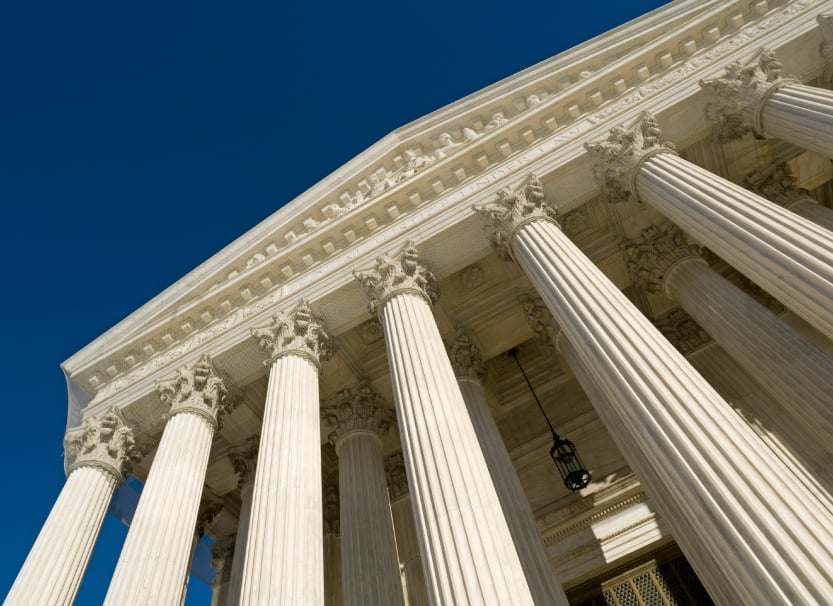
Texas Legislature Continues to Tweak the Business Court Formula
On June 20, 2025, Texas Governor Greg Abbott signed House Bill 40 (H.B. 40), making changes to Texas’s business court. H.B. 40 signals the state’s growing commitment to its newly created business court. While the business court began to hear cases last year, the amendments reflected in H.B. 40 modify key aspects of the court’s jurisdictional scope and procedural structure, reflecting the legislature’s confidence in the court. As the business court takes on a larger role in the Texas legal landscape, attorneys should take this opportunity take a fresh look at the strategic opportunities that the business court presents.

Time Flies: Understanding The Court of Chancery’s Approach To Laches and Statutes of Limitations
The doctrine of laches and statutes of limitations both bar claims brought too late. But when does each apply? And how late is too late? A recent case in the Delaware Court of Chancery, MW Gestion v. Sinovac Biotech Ltd., provides insight.

Strategic Questions to Consider as Business Courts Open in Texas
Texas’ new business courts are one month away from opening their doors on September 1. Over the last few weeks, Texas has been preparing for that day. Texas Governor Greg Abbott recently appointed the inaugural set of business court judges, and the Texas Supreme Court finalized the business court’s rules and filing fees. Companies that do business in or that otherwise have ties to Texas should also start planning now for the strategic questions that may arise when business courts become an option in just a few short weeks.

The Court of Chancery Prunes Back the Limits of Its Jurisdiction
The Delaware Court of Chancery is one of limited jurisdiction, accessible only when complete relief at law is unavailable. On March 4, 2024, in Graciano v Adobe Healthcare, Inc., Vice Chancellor Glasscock continued a trend from other recent cases toward guarding the limits of the Court of Chancery’s equitable jurisdiction, when he concluded that a claim for release of funds in escrow established through an M&A transaction was not equitable in nature—even though framed as a request for specific performance—because a declaratory judgment was the only judicial action required to afford the Plaintiff relief.
Corporate Personal Jurisdiction, Mallory, and Forum-Shopping: What’s Next for Multistate or International Corporations?
A new federal court decision, Madsen v. Sidwell Air Freight1, addresses the scope of general personal jurisdiction over corporations after the Supreme Court’s 2023 decision in Mallory v. Norfolk Southern Railway2. Madsen suggests that many states’ laws stop short of asserting the kind of registration-based jurisdiction that Mallory approved. This decision highlights key arguments that in-house litigators should bear in mind if their companies do business in multiple states.
On the Efficacy of Litigating Post-Employment Disputes in Delaware (Reciprocity Is a Two-Way Street)
Last November, Vice Chancellor J. Travis Laster issued an Opinion in Sunder Energy, LLC v. Jackson denying a company’s application for a preliminary injunction against a former employee based on restrictive covenants embedded in that employee’s Incentive Units. The Court held that the company could not enforce the covenants because the company’s Managers breached their fiduciary duties in the creation of those covenants, and because the covenants themselves are “overly broad” and “unreasonable.” The Court noted, for example, that covenants in this residential solar panel sales company’s Incentive Units could theoretically have indefinitely prevented the former employee’s daughter from door-to-door sales of Girl Scout cookies. (more…)
Protecting Its “Unwaivable Right to a Jury Trial,” California Waves Goodbye to a Delaware Forum Selection Clause
I. Overview of Enforceability of Forum Selection Clauses
The Delaware Court of Chancery has promoted the use of forum selection clauses in corporate charters since its 2010 opinion In re Revlon Inc. Shareholders Litigation. Three years later, in Boilermakers v. Chevron, the Delaware Court of Chancery ruled that forum selection clauses in corporate bylaws are facially valid for types of shareholder litigation, including derivative claims, fiduciary claims, statutory claims under the Delaware General Corporation Law, and claims regarding internal affairs. In light of these decisions, Delaware forum selection clauses contained in corporate charters or bylaws of the type found facially valid in Boilermakers have been enforced by state courts in many states. But a recent decision from a California appellate court suggests that some California courts may be resistant to such provisions based on California public policy in favor of the right to a jury trial.
New York Court Confirms: No Discovery Pending Motions To Dismiss Securities Claims
Resolving an issue that had split the trial courts in New York (and has also divided state courts across the country), the First Department ruled yesterday that the PSLRA discovery stay applies in state court. In Camelot Event Driven Fund et al. v. Morgan Stanley & Co. et al, Case No. 2023-03270, 2023 WL 7198938 (1st Dep’t Nov. 2, 2023), the court stated that “the plain language of the statute demonstrates” that the discovery stay provision applies to “any private action, whether brought in state or federal court.”

Asking For Equity Is Not Enough: Chancery Clarifies Jurisdiction Pleading Requirements
Litigants before the Delaware Court of Chancery appreciate that the court scrutinizes its jurisdiction as a court of equity. One recent example, Buescher v. Landsea Homes Corp., focused on two questions. First, whether an alternative claim for specific performance can support equity jurisdiction when it is duplicative of a statutory claim for declaratory judgment. Second, whether a cause of action for negligent misrepresentation (a form of equitable fraud) can establish jurisdiction when the court believes such a claim to be unviable and likely merely a pretext for jurisdiction. Not surprisingly, the court concluded no to both questions. But it did so in the context of claims to an escrow fund established through an M&A transaction that may be surprising to some practitioners.
Welcome to Texas: Texas Governor Signs Law Creating Specialized Business Courts
Last Friday, Gov. Greg Abbott signed into law House Bill 19, creating Texas “business courts” to hear certain types of complex commercial disputes. These courts will open on September 1, 2024. The creation of these courts raises a host of strategic questions for litigants, as described in detail below. In-house lawyers would do well to start familiarizing themselves with the business courts’ structure and the strategic issues and decision points that may arise when the courts open their doors next year.

